Unit 10 You’re supposed to shake hands.(Section A 3a-3c)
文档属性
| 名称 | Unit 10 You’re supposed to shake hands.(Section A 3a-3c) |
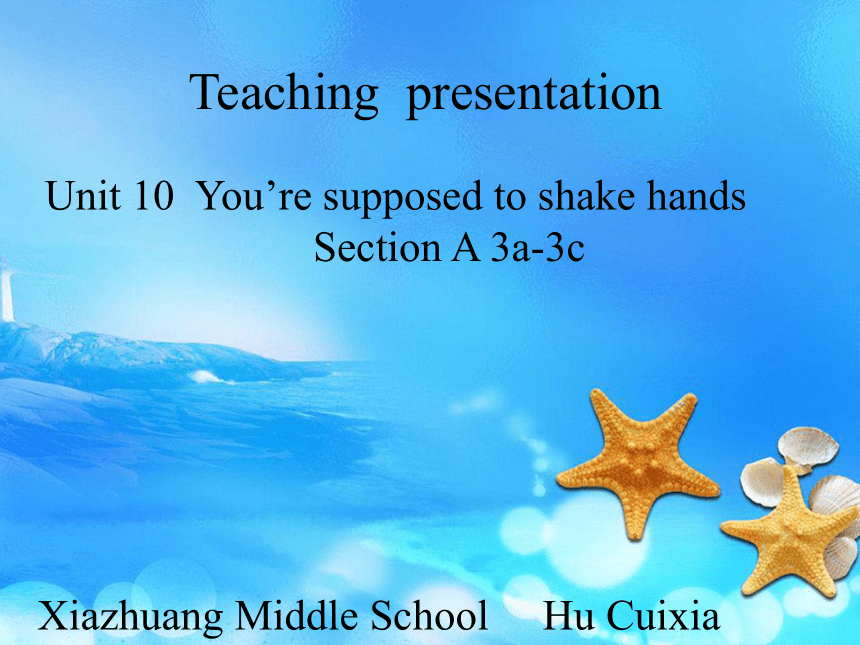
|
|
| 格式 | zip | ||
| 文件大小 | 1.6MB | ||
| 资源类型 | 教案 | ||
| 版本资源 | 人教新目标(Go for it)版 | ||
| 科目 | 英语 | ||
| 更新时间 | 2015-11-22 00:00:00 | ||
图片预览



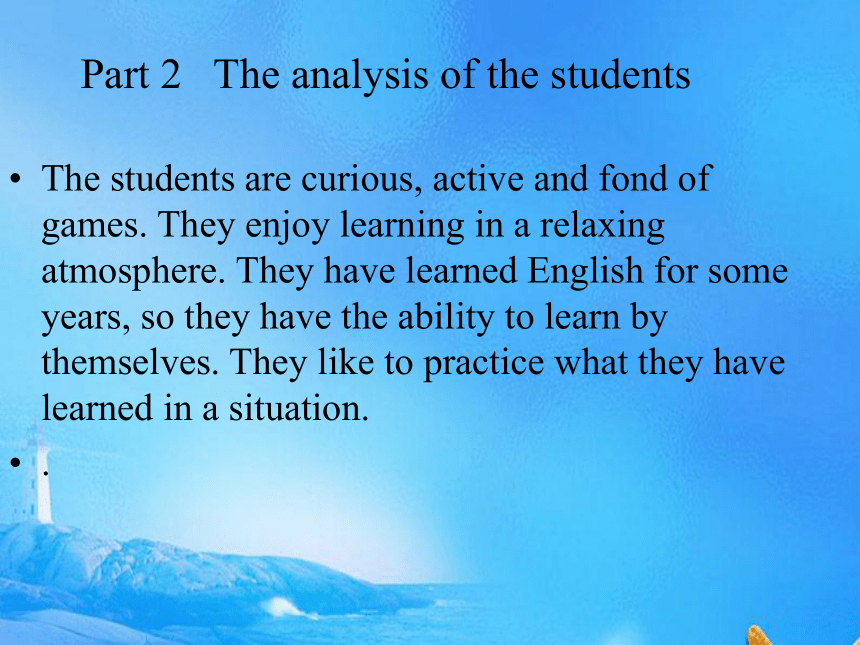
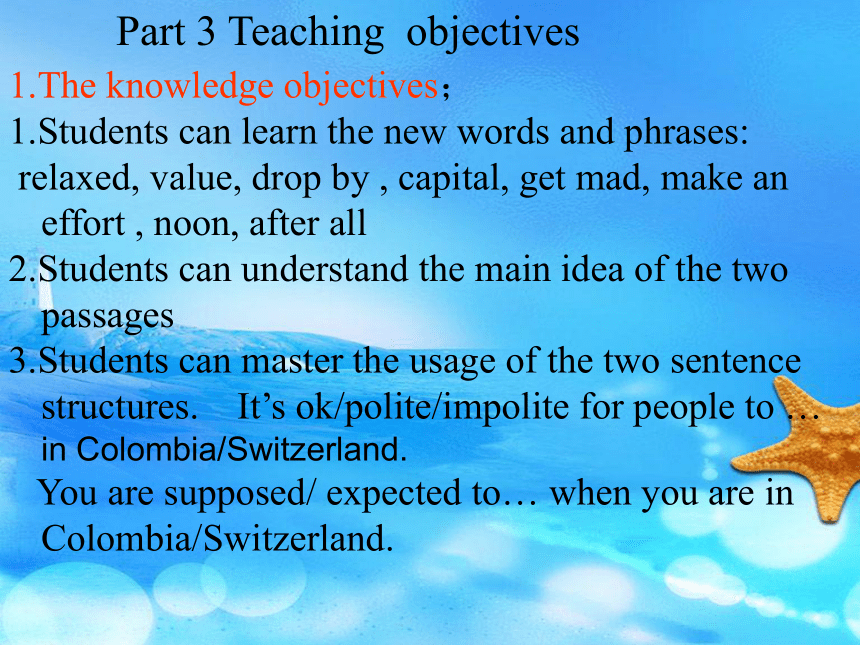
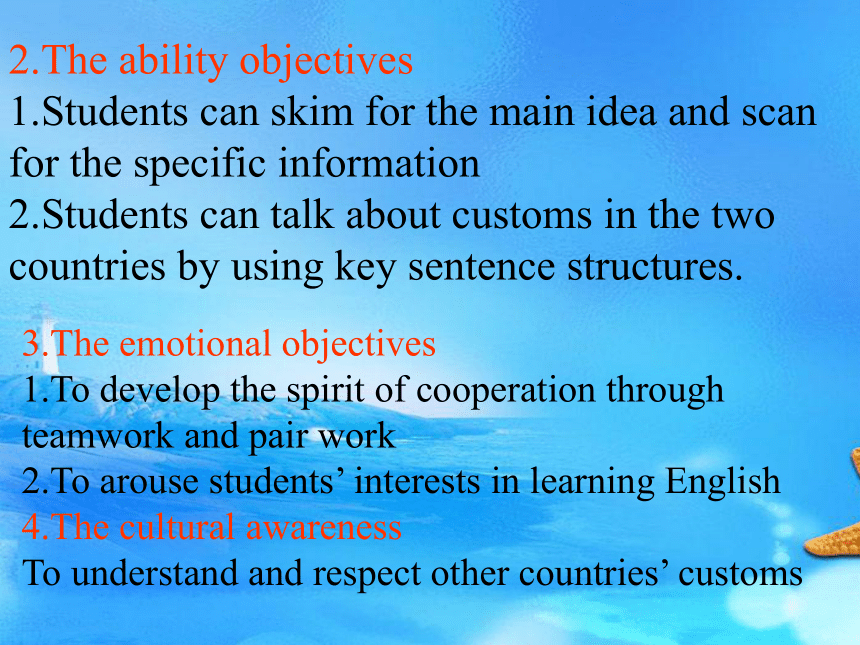
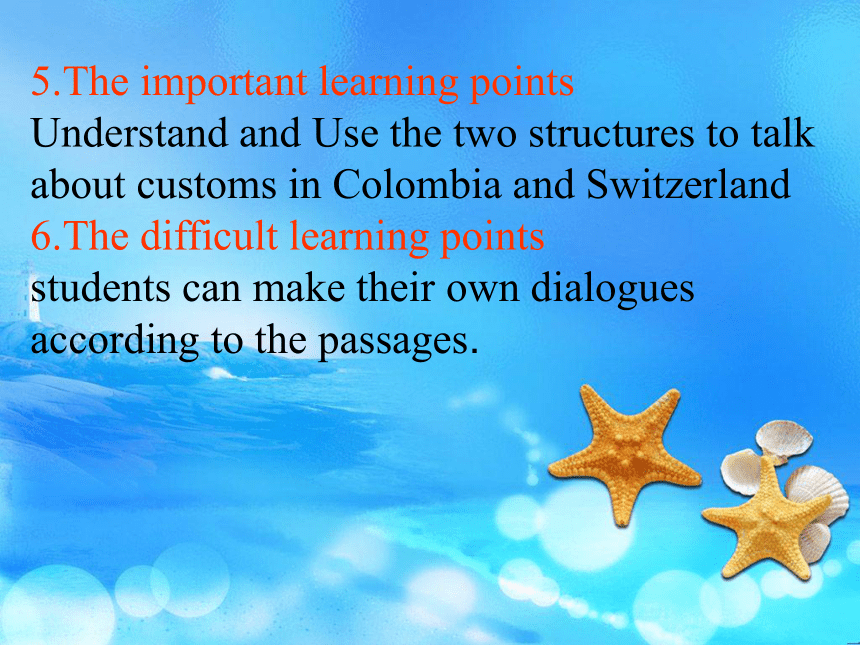
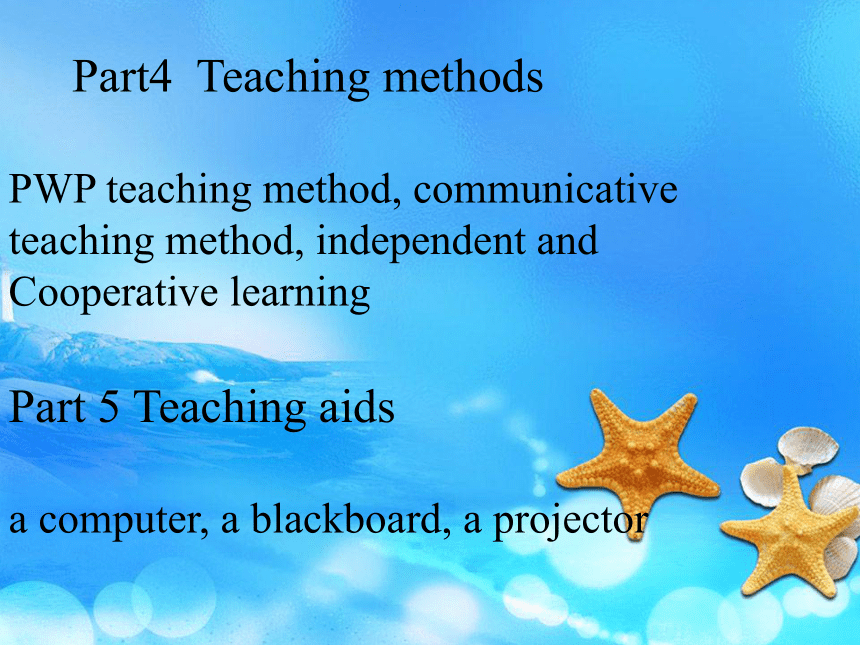
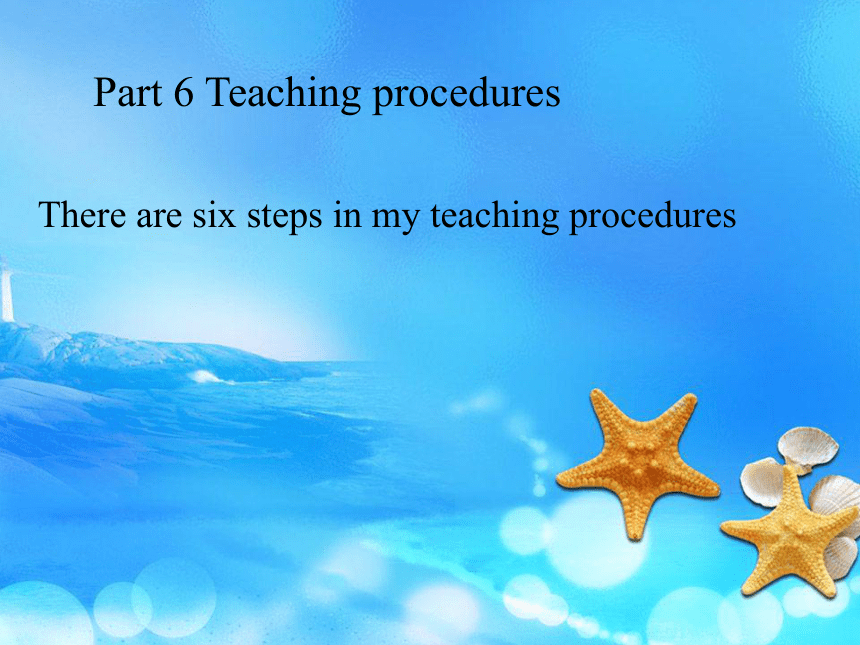
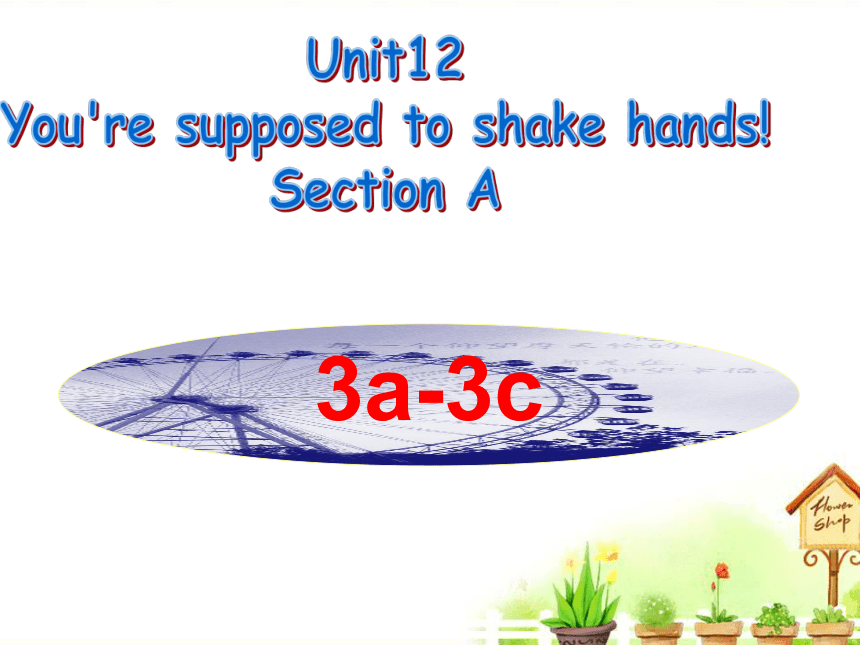
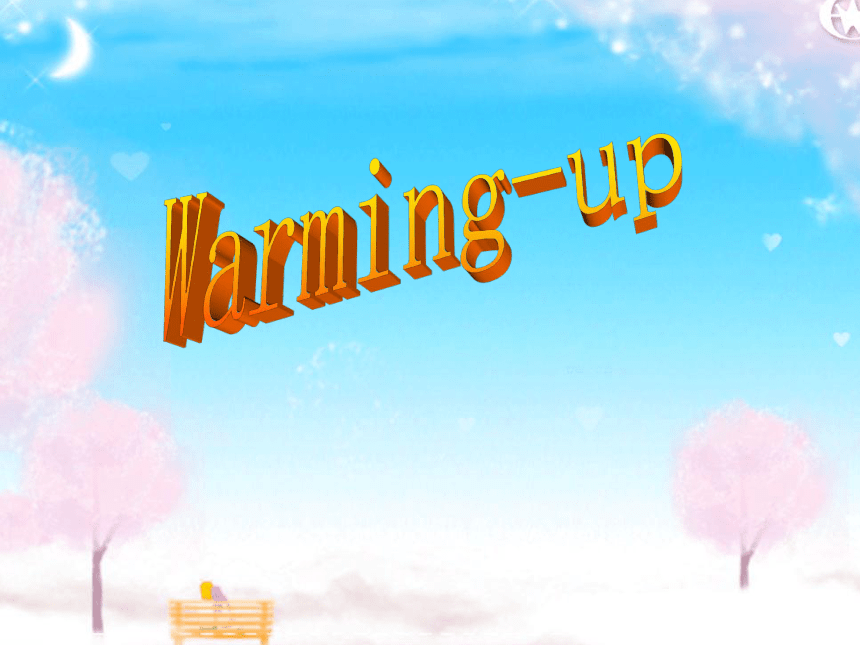
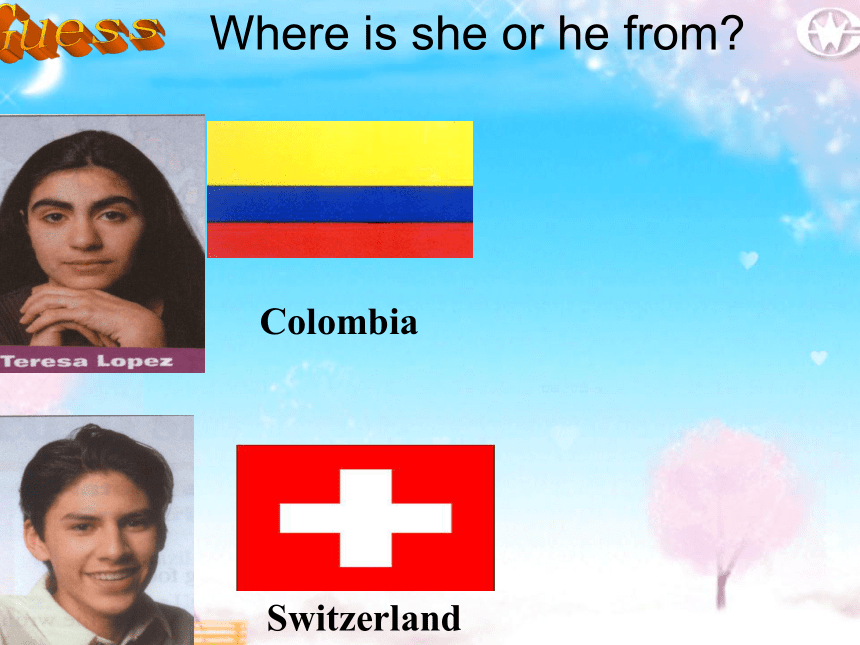
文档简介
课件36张PPT。Unit 10 You’re supposed to shake hands
Section A 3a-3cXiazhuang Middle School Hu CuixiaTeaching presentation1.The analysis of the teaching materials
2.The analysis of the students
3.Teaching objectives
4.Teaching methods
5,Teaching aids
6.Teaching procedures
My presentation consists of six partsThis lesson is about reading. It is the second period of Unit10 you’re supposed to shake hands. The language goal is talking about customs and what you are supposed to do. It includes two small passages which talks about customs in Columbia and Switzerland. The topic of customs is related to our daily life, so it is easy to arouse the students’ learning interests and it is also helpful to broaden students’ horizon .part 1 The analysis of the teaching materialsThe students are curious, active and fond of games. They enjoy learning in a relaxing atmosphere. They have learned English for some years, so they have the ability to learn by themselves. They like to practice what they have learned in a situation.
.Part 2 The analysis of the studentsPart 3 Teaching objectives1.The knowledge objectives;
1.Students can learn the new words and phrases:
relaxed, value, drop by , capital, get mad, make an effort , noon, after all
2.Students can understand the main idea of the two passages
3.Students can master the usage of the two sentence structures. It’s ok/polite/impolite for people to … in Colombia/Switzerland.
You are supposed/ expected to… when you are in Colombia/Switzerland. 2.The ability objectives
1.Students can skim for the main idea and scan for the specific information
2.Students can talk about customs in the two countries by using key sentence structures.3.The emotional objectives
1.To develop the spirit of cooperation through teamwork and pair work
2.To arouse students’ interests in learning English
4.The cultural awareness
To understand and respect other countries’ customs5.The important learning points
Understand and Use the two structures to talk about customs in Colombia and Switzerland
6.The difficult learning points
students can make their own dialogues according to the passages.
Part4 Teaching methodsPWP teaching method, communicative teaching method, independent and Cooperative learning
Part 5 Teaching aids
a computer, a blackboard, a projectorPart 6 Teaching proceduresThere are six steps in my teaching procedures Unit12
You're supposed to shake hands!
Section AWarming-upColombia SwitzerlandGuessWhere is she or he from?Free talkWhat do you know about Colombia and
Switzerland?Colombia?is a?country?in?South America. It is in the northwest part of that Continent and it has an area of 1.141.748?km2 (440,839 sq mi). It has been the country which produces the best mild coffee in the world. Garcia Marquez, a famous writer, is from Colombia. What do you know about Colombia?What do you know about Switzerland?Switzerland is situated in Western?and?Central Europe. It is home to one of the world's most thriving economies and also one of the happiest populations in the world. Our new friends will tell us some more information about their motherland.Do you want to know ? Let’s read the passages in 3a.What’s the meanings of words or phrases in red?Pre-readingHave a guessDon’t be afraid, just be relaxed about the interview.
2. If you value something or someone, you think they are
important.
3.I often drop by my friend’s home.
4.Beingjing is the capital of China.
5.We have lunch at noon.
6.If you arrive late, your friend may get mad.
7.Don’t be angry with him. He is a child after all.
8.I will make an effort to pass the exam.
对…放松/比较随意v.重视,珍视顺便拜访n.首都n. 正午,中午make an effort to do sth. 努力做某事 生气,发疯毕竟,终究对…放松/比较随意v.重视,珍视顺便拜访n.首都n. 正午,中午make an effort to do sth. 生气,发疯毕竟,终究努力做某事Have a checkv. valuebe relaxed aboutdrop bycapitalget madafter all.noon·1.Fast reading StrategyWhile-readingRead for the meanings, not for the details
2. Intensive reading strategyRead carefully and get the details.Fast readingRead the passages as quickly as possible and try to answer the following questions.1.What are the two passages mainly about?
2.Which three big differences are talked about in
the two passages?
3.In which country is it ok to be 15 minutes late for
dinner? How do you know?1.What are the two passages mainly about?
2.Which three big differences are talked about in
the two passages?
3.In which country is it ok to be 15 minutes late for
dinner? How do you know?Fast reading Differences between Colombian and Swiss
customsBeing on time; visiting a friend’s house;
making plans with friendsFrom the sentences ‘we’re pretty relaxed about
time.” and “ It’s very important to be on time.” ColumbiaRead the passages again and complete the chart
in 3b.Read carefully and get the details.Task 12.Intensive reading strategy
精读策略3bWe are pretty relax about time.We often just drop by our friends’ homes.We don’t have to make plans when we get together with friends.It’s very important to be on time.We never visit a friend’s house without calling first.We usually make plans
to meet friends.3bGroup workWork in a group of four students, discuss the customs in
Colombia and Switzerland. You should try to use the
following sentence structures:
1.You are supposed to…when you are in Colombia or
Switzerland.
2.It’s +adj.( ok/ important/ polite/impolite) to …in Colombia
or Switzerland.
Intensive ReadingTask 23c. Pairwork A: Hi, Marc. Sorry I’m a little late.
B: Teresa, you’re 10 minutes late!
A: It’s just 10 minutes!
It’s no big deal!
B: Well, in Switzerland, you’re
supposed to…Role-play a conversation. Student A is
Teresa and Student B is Marc. Teresa is
late and Marc is mad.Post-readingTask 1What are you supposed to do when you are in a foreign country? Why?When in Rome, do as the romans do.Think it overPost-readingPost readingDiscussionWhich words, phrases or sentences do you
think are important for you to learn?
Find them out and discuss them with your
Classmates, then give a report.Task 21. Where I’m from, we’re pretty relaxed about time.
在我们那儿,对时间的要求相当宽松。
where I’m from是地点状语从句,相当于in/at/to+the place+where 从句,意为“在……地方”。Language points 例 ______ he comes from, people make a living by fishing.
A. What B. Where C. When D. How 【点拨】选B。句意:在他的家乡,人们靠打渔为生。
引导地点状语从句,意为“在……地方”,用连接副词where。
2. Often we just walk around the town center, seeing as many of our friends as we can! 我们常常只是在市中心走动,尽可能多地见见我们的朋友!
(1)seeing as many of our friends as we can是现在分词短语,在句中作状语。现在分词(短语)作状语可以表示目的、条件、原因、结果、让步、伴随等。现在分词(短语)作状语时,它的逻辑主语与句子的主语一致。
(2)as. . . as one can意为“尽可能……”, 相当于as. . . as possible, as. . . as中间要用形容词、副词的原级。例 —Excuse me, Miss Green. Could you please tell me how to improve my spoken English?
—OK. The best way is to practice speaking English ______ .
A. as soon as possible B. as quickly as possible
C. as much as possible D. as clear as possible【点拨】选C。由语境知句意为“最好的办法是尽可能多地练习说
英语”。表示“尽可能多地做……”用as much as possible。故选C。
3. In Switzerland, it’s very important to be on time.
在瑞士,守时是非常重要的。
on time强调“准时;按时”,相当于at the right time。例 Students should get to school ______ on weekdays.
A. in time B. on time
C. at times D. at the time【点拨】选B。句意:上学时,学生应按时到校。on time “准时;
按时”。故选B。
Summary1.Some customs in Switzerland and Colombia.2.Words and phrases:3.Sentences:Being on time; visiting a friend’s house;
making plans with friends
relaxed, value, drop by , capital, get mad,
make an effort , noon, after all …
1.It’s polite for boys to shake hands .
2.I think it is impolite to keep others waiting.
3.I make an effort to be on time when I meet my
friends.
…HomeworkOur new friends have told us some customs in their motherland .Would you like to tell them some Chinese customs? Please write ideas and customs about being on time, visiting a friend’s houses and making plans with friends in China. We will share your composition next class Blackboard designUnit 10 You are supposed to shake hands.
Section A 3a-3cExamples:
1.You are supposed to be on time when you are in
Switzerland.
2.It’s polite for boys to shake hands in Colombia.
enjoy doing sth.
avoid doing sth. Thank you
Section A 3a-3cXiazhuang Middle School Hu CuixiaTeaching presentation1.The analysis of the teaching materials
2.The analysis of the students
3.Teaching objectives
4.Teaching methods
5,Teaching aids
6.Teaching procedures
My presentation consists of six partsThis lesson is about reading. It is the second period of Unit10 you’re supposed to shake hands. The language goal is talking about customs and what you are supposed to do. It includes two small passages which talks about customs in Columbia and Switzerland. The topic of customs is related to our daily life, so it is easy to arouse the students’ learning interests and it is also helpful to broaden students’ horizon .part 1 The analysis of the teaching materialsThe students are curious, active and fond of games. They enjoy learning in a relaxing atmosphere. They have learned English for some years, so they have the ability to learn by themselves. They like to practice what they have learned in a situation.
.Part 2 The analysis of the studentsPart 3 Teaching objectives1.The knowledge objectives;
1.Students can learn the new words and phrases:
relaxed, value, drop by , capital, get mad, make an effort , noon, after all
2.Students can understand the main idea of the two passages
3.Students can master the usage of the two sentence structures. It’s ok/polite/impolite for people to … in Colombia/Switzerland.
You are supposed/ expected to… when you are in Colombia/Switzerland. 2.The ability objectives
1.Students can skim for the main idea and scan for the specific information
2.Students can talk about customs in the two countries by using key sentence structures.3.The emotional objectives
1.To develop the spirit of cooperation through teamwork and pair work
2.To arouse students’ interests in learning English
4.The cultural awareness
To understand and respect other countries’ customs5.The important learning points
Understand and Use the two structures to talk about customs in Colombia and Switzerland
6.The difficult learning points
students can make their own dialogues according to the passages.
Part4 Teaching methodsPWP teaching method, communicative teaching method, independent and Cooperative learning
Part 5 Teaching aids
a computer, a blackboard, a projectorPart 6 Teaching proceduresThere are six steps in my teaching procedures Unit12
You're supposed to shake hands!
Section AWarming-upColombia SwitzerlandGuessWhere is she or he from?Free talkWhat do you know about Colombia and
Switzerland?Colombia?is a?country?in?South America. It is in the northwest part of that Continent and it has an area of 1.141.748?km2 (440,839 sq mi). It has been the country which produces the best mild coffee in the world. Garcia Marquez, a famous writer, is from Colombia. What do you know about Colombia?What do you know about Switzerland?Switzerland is situated in Western?and?Central Europe. It is home to one of the world's most thriving economies and also one of the happiest populations in the world. Our new friends will tell us some more information about their motherland.Do you want to know ? Let’s read the passages in 3a.What’s the meanings of words or phrases in red?Pre-readingHave a guessDon’t be afraid, just be relaxed about the interview.
2. If you value something or someone, you think they are
important.
3.I often drop by my friend’s home.
4.Beingjing is the capital of China.
5.We have lunch at noon.
6.If you arrive late, your friend may get mad.
7.Don’t be angry with him. He is a child after all.
8.I will make an effort to pass the exam.
对…放松/比较随意v.重视,珍视顺便拜访n.首都n. 正午,中午make an effort to do sth. 努力做某事 生气,发疯毕竟,终究对…放松/比较随意v.重视,珍视顺便拜访n.首都n. 正午,中午make an effort to do sth. 生气,发疯毕竟,终究努力做某事Have a checkv. valuebe relaxed aboutdrop bycapitalget madafter all.noon·1.Fast reading StrategyWhile-readingRead for the meanings, not for the details
2. Intensive reading strategyRead carefully and get the details.Fast readingRead the passages as quickly as possible and try to answer the following questions.1.What are the two passages mainly about?
2.Which three big differences are talked about in
the two passages?
3.In which country is it ok to be 15 minutes late for
dinner? How do you know?1.What are the two passages mainly about?
2.Which three big differences are talked about in
the two passages?
3.In which country is it ok to be 15 minutes late for
dinner? How do you know?Fast reading Differences between Colombian and Swiss
customsBeing on time; visiting a friend’s house;
making plans with friendsFrom the sentences ‘we’re pretty relaxed about
time.” and “ It’s very important to be on time.” ColumbiaRead the passages again and complete the chart
in 3b.Read carefully and get the details.Task 12.Intensive reading strategy
精读策略3bWe are pretty relax about time.We often just drop by our friends’ homes.We don’t have to make plans when we get together with friends.It’s very important to be on time.We never visit a friend’s house without calling first.We usually make plans
to meet friends.3bGroup workWork in a group of four students, discuss the customs in
Colombia and Switzerland. You should try to use the
following sentence structures:
1.You are supposed to…when you are in Colombia or
Switzerland.
2.It’s +adj.( ok/ important/ polite/impolite) to …in Colombia
or Switzerland.
Intensive ReadingTask 23c. Pairwork A: Hi, Marc. Sorry I’m a little late.
B: Teresa, you’re 10 minutes late!
A: It’s just 10 minutes!
It’s no big deal!
B: Well, in Switzerland, you’re
supposed to…Role-play a conversation. Student A is
Teresa and Student B is Marc. Teresa is
late and Marc is mad.Post-readingTask 1What are you supposed to do when you are in a foreign country? Why?When in Rome, do as the romans do.Think it overPost-readingPost readingDiscussionWhich words, phrases or sentences do you
think are important for you to learn?
Find them out and discuss them with your
Classmates, then give a report.Task 21. Where I’m from, we’re pretty relaxed about time.
在我们那儿,对时间的要求相当宽松。
where I’m from是地点状语从句,相当于in/at/to+the place+where 从句,意为“在……地方”。Language points 例 ______ he comes from, people make a living by fishing.
A. What B. Where C. When D. How 【点拨】选B。句意:在他的家乡,人们靠打渔为生。
引导地点状语从句,意为“在……地方”,用连接副词where。
2. Often we just walk around the town center, seeing as many of our friends as we can! 我们常常只是在市中心走动,尽可能多地见见我们的朋友!
(1)seeing as many of our friends as we can是现在分词短语,在句中作状语。现在分词(短语)作状语可以表示目的、条件、原因、结果、让步、伴随等。现在分词(短语)作状语时,它的逻辑主语与句子的主语一致。
(2)as. . . as one can意为“尽可能……”, 相当于as. . . as possible, as. . . as中间要用形容词、副词的原级。例 —Excuse me, Miss Green. Could you please tell me how to improve my spoken English?
—OK. The best way is to practice speaking English ______ .
A. as soon as possible B. as quickly as possible
C. as much as possible D. as clear as possible【点拨】选C。由语境知句意为“最好的办法是尽可能多地练习说
英语”。表示“尽可能多地做……”用as much as possible。故选C。
3. In Switzerland, it’s very important to be on time.
在瑞士,守时是非常重要的。
on time强调“准时;按时”,相当于at the right time。例 Students should get to school ______ on weekdays.
A. in time B. on time
C. at times D. at the time【点拨】选B。句意:上学时,学生应按时到校。on time “准时;
按时”。故选B。
Summary1.Some customs in Switzerland and Colombia.2.Words and phrases:3.Sentences:Being on time; visiting a friend’s house;
making plans with friends
relaxed, value, drop by , capital, get mad,
make an effort , noon, after all …
1.It’s polite for boys to shake hands .
2.I think it is impolite to keep others waiting.
3.I make an effort to be on time when I meet my
friends.
…HomeworkOur new friends have told us some customs in their motherland .Would you like to tell them some Chinese customs? Please write ideas and customs about being on time, visiting a friend’s houses and making plans with friends in China. We will share your composition next class Blackboard designUnit 10 You are supposed to shake hands.
Section A 3a-3cExamples:
1.You are supposed to be on time when you are in
Switzerland.
2.It’s polite for boys to shake hands in Colombia.
enjoy doing sth.
avoid doing sth. Thank you
同课章节目录
- Unit 1 How can we become good learners.
- Section A
- Section B
- Unit 2 I think that mooncakes are delicious!
- Section A
- Section B
- Unit 3 Could you please tell me where the restroom
- Section A
- Section B
- Unit 4 I used to be afraid of the dark.
- Section A
- Section B
- Unit 5 What are the shirts made of?
- Section A
- Section B
- Review of Units 1-5
- Unit 6 When was it invented?
- Section A
- Section B
- Unit 7 Teenagers should be allowed to choose their
- Section A
- Section B
- Unit 8 It must belong to Carla.
- Section A
- Section B
- Unit 9 I like music that I can dance to.
- Section A
- Section B
- Unit 10 You're supposed to shake hands.
- Section A
- Section B
- Review of Units 6-10
- Unit 11 Sad movies make me cry.
- Section A
- Section B
- Unit 12 Life is full of the unexpected
- Section A
- Section B
- Unit 13 We're trying to save the earth!
- Section A
- Section B
- Unit 14 I remember meeting all of you in Grade 7.
- Section A
- Section B
- Review of Units 11-14
